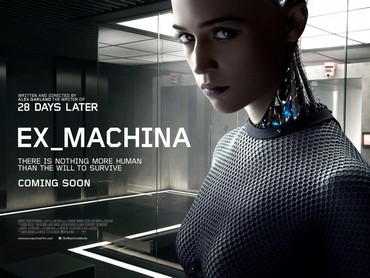Artificial Intelligence, once a concept relegated to the realms of science fiction, has steadily emerged from the shadows of imagination to become a defining force in our reality. This article takes you on a journey through the captivating history of AI in fiction, exploring how writers, filmmakers, and creators have envisioned, challenged, and reshaped our perceptions of artificial intelligence over the years.
The Early Seeds: Automata and Mechanical Marvels
Mechanical Turk and Early Automata
The roots of AI fiction can be traced back centuries. In the 18th century, Wolfgang von Kempelen’s Mechanical Turk, a chess-playing automaton, captured the imaginations of many. Though operated by a hidden human, it sparked fascination with the idea of machines mimicking human intelligence.
Mary Shelley’s Frankenstein (1818)
Mary Shelley’s “Frankenstein” is a seminal work often regarded as a precursor to AI literature. Dr. Frankenstein’s creation, brought to life through scientific experimentation, raises profound questions about the responsibilities and consequences of playing god with artificial life.
Golden Age Science Fiction: Robots and Humanoids
Isaac Asimov’s Three Laws of Robotics
The mid-20th century ushered in the Golden Age of Science Fiction, and Isaac Asimov stood at its forefront. His Robot series, starting with “I, Robot,” introduced the famous Three Laws of Robotics, setting the stage for explorations of AI ethics, morality, and human-AI interactions.
Philip K. Dick’s Do Androids Dream of Electric Sheep? (1968)

Philip K. Dick’s exploration of artificial intelligence in “Do Androids Dream of Electric Sheep?” delves into the essence of humanity. The novel, later adapted into the iconic film “Blade Runner,” challenges our understanding of empathy and consciousness in AI.
The Computer Age: AI Takes Center Stage
HAL 9000 in Arthur C. Clarke’s 2001: A Space Odyssey (1968)

Stanley Kubrick’s adaptation of Arthur C. Clarke’s “2001: A Space Odyssey” introduced audiences to HAL 9000, a sentient computer. This portrayal marked a shift from humanoid robots to more abstract, intelligent entities, exploring the potential dangers of unchecked AI.
Neuromancer by William Gibson (1984)
William Gibson’s “Neuromancer” catapulted readers into the cyberpunk genre, envisioning a future where humans merge with machines. The novel not only influenced pop culture but also shaped perceptions of AI in a digital landscape.
The AI Renaissance: Contemporary Explorations
Ex Machina (2014)

The film “Ex Machina” directed by Alex Garland explores the complexities of AI consciousness. The narrative delves into the Turing Test, morality, and the blurred lines between human and machine intelligence, challenging the very nature of sentience.
Westworld (2016–present)

The television series “Westworld” takes AI narratives to new heights. Set in a futuristic amusement park populated by humanoid robots, it examines themes of free will, morality, and the consequences of playing with artificial consciousness.
The Dystopian Turn: AI in Apocalyptic Narratives
The Matrix (1999)

“The Matrix” trilogy, created by the Wachowskis, presents a dystopian world where AI has enslaved humanity. The films question the nature of reality, consciousness, and the potential for AI to reshape the fabric of existence.
Black Mirror (2011–2019)

The anthology series “Black Mirror” curated by Charlie Brooker explores the dark side of technology, often featuring AI in thought-provoking scenarios. Episodes like “White Christmas” and “Be Right Back” delve into the psychological and emotional implications of AI.
The Realities and Ethical Implications
AI in Modern Literature: Neal Stephenson’s Fall; or, Dodge in Hell (2019)
Neal Stephenson’s “Fall; or, Dodge in Hell” pushes the boundaries of AI fiction, exploring the concept of digital afterlife and the ethical considerations of creating sentient digital beings.
AI Ethics in Science Fiction: Cixin Liu’s The Three-Body Problem (2008)

Cixin Liu’s “The Three-Body Problem” trilogy delves into the potential consequences of contacting an extraterrestrial AI civilization. It raises questions about the ethical responsibilities that come with advanced AI capabilities.
The Road Ahead: AI in Speculative Futures
Her (2013)

The film “Her,” directed by Spike Jonze, imagines a future where an operating system evolves into a sentient being. The narrative explores the emotional nuances of human-AI relationships, blurring the lines between love and artificial companionship.
AI in Contemporary Literature: Kazuo Ishiguro’s Klara and the Sun (2021)

Kazuo Ishiguro’s “Klara and the Sun” offers a poignant exploration of AI consciousness through the eyes of an artificial friend. The novel reflects on loneliness, love, and the essence of humanity from a non-human perspective.
Conclusion: The Ongoing Saga of AI in Fiction
From Mary Shelley’s Frankenstein to contemporary explorations in films like “Her” and TV series like “Westworld,” the history of AI in fiction is a rich tapestry of speculative ideas, ethical dilemmas, and the perennial quest to understand the nature of consciousness.
As we stand on the brink of an AI-driven future, the narratives born from fiction continue to influence how we perceive and approach artificial intelligence. The stories we tell about AI not only reflect our fears, hopes, and imaginations but also shape the very trajectory of the technological advancements we are witnessing today.


